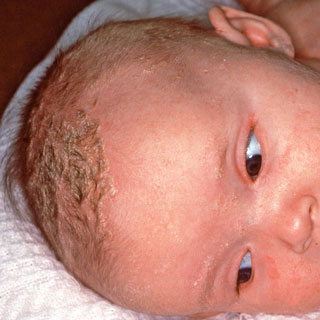Photos

Cradle Cap
This shows a baby with cradle cap on the eyebrows and eyelids. Cradle cap looks oily, yellow, scaly and crusty.
Source: Self Care Decisions, LLC
From the Dr. James Fitzpatrick Collection of Pediatric Dermatology. Used with permission.